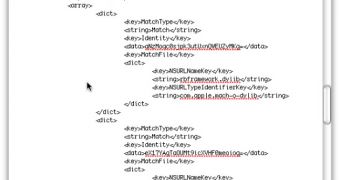According to Graham Cluley writing for Sophos, “Apple's 10.6.4 operating system upgrade earlier this week silently updated the malware protection built into Mac OS X to protect against a backdoor Trojan horse that can allow hackers to gain remote control over your treasured iMac or MacBook.” Apple, however, has failed to document this fix, leaving Cluley wondering whether it is keeping quiet on these matters for marketing reasons.
“Although there is no mention of it that we could find in Apple's release notes for Mac OS X 10.6.4, or the accompanying security bulletin, Apple has updated XProtect.plist - the rudimentary file that contains elementary signatures of a handful of Mac threats - to detect what they call HellRTS,” Graham Cluley writes on his blog at Sophos.
“If you did get infected by this malware then hackers would be able to send spam email from your Mac, take screenshots of what you are doing, access your files and clipboard and much more,” the security expert explains. HellRTS started doing the rounds disguised as iPhoto 09 last year, and was distributed through various file-sharing websites.
Cluley continues, “Unfortunately, many Mac users seem oblivious to security threats which can run on their computers. And that isn't helped when Apple issues an anti-malware security update like this by stealth, rather than informing the public what it has done. You have to wonder whether their keeping quiet about an anti-malware security update like this was for marketing reasons. ‘Shh! Don't tell folks that we have to protect against malware on Mac OS X!’”
Whether or not Cluley is right about Apple is acting in bad faith here, “It seems their own employees can be amongst the worst offenders when it comes to giving users security advice,” he adds, in what is clearly an anti-Apple blog post (at least from a security standpoint). “Just a few days ago I saw a former colleague of mine tweet about the poor advice about malware protection being offered in Apple retail stores,” Cluley reveals, and posts the screenshot available to the left (click to enlarge).
The security researcher admits that Macs are less of a target for hackers than Windows PCs, although not taking these matters seriously might make Mac owners “a soft target for hackers in the future,” Cluley believes. He concludes by saying that Apple’s efforts in reducing malware problems are admirable. However, anti-virus software is starting to become a necessity for Mac owners as well, Cluley suggests. The full post is available here. Mac users are encouraged to read in full, to ensure they have good knowledge of how to protect their Macs.

 14 DAY TRIAL //
14 DAY TRIAL //